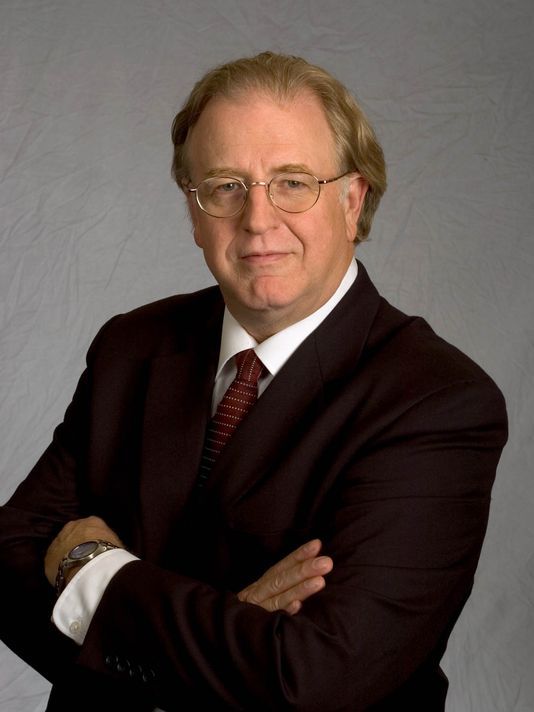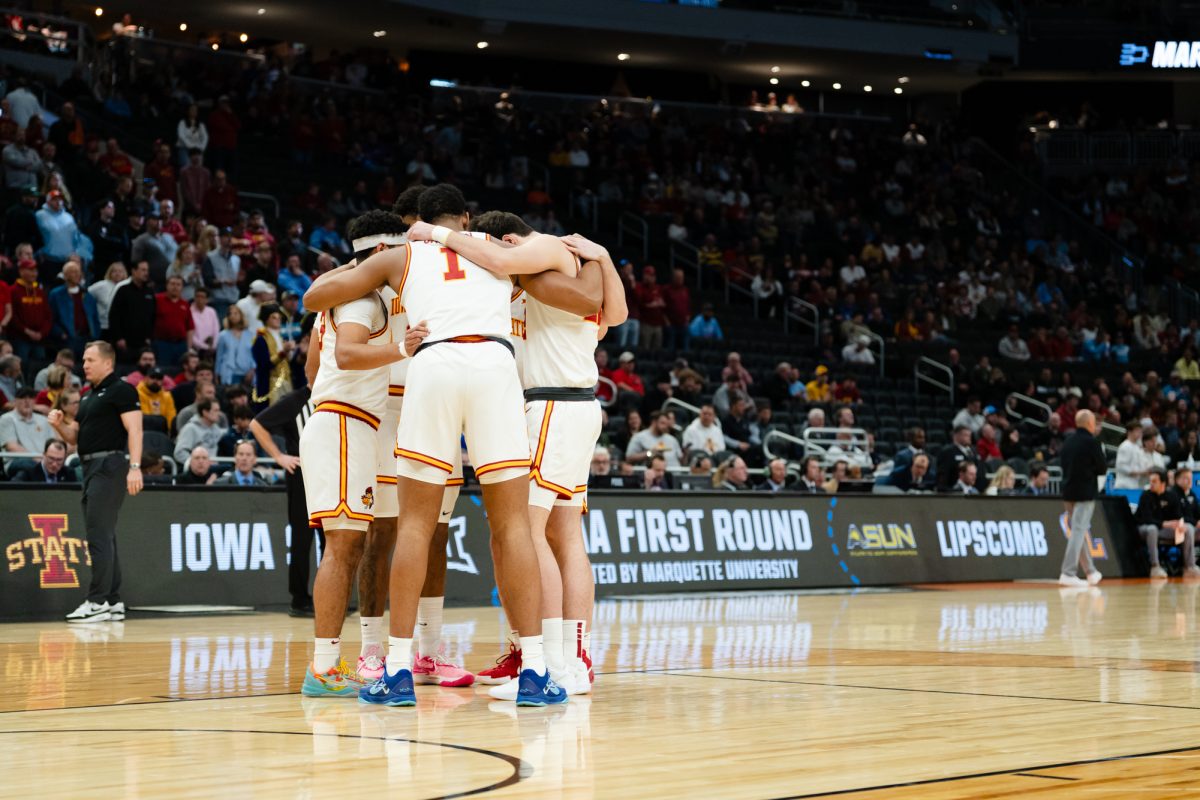Iowa State celebrates rights of First Amendment
April 20, 2015
Americans often claim to love and follow the Constitution, but sadly many citizens are unaware of its basic contents.
The First Amendment Center, based in Nashville, Tenn., has found only 1 in 6 Americans have been able to name the five freedoms granted by the First Amendment since the yearly poll began in 1997.
The five freedoms granted by the First Amendment are: freedom of speech, freedom of the press, the right to assemble, the right to petition the government and freedom of and from religion.
In an attempt to better educate students and the community, Iowa State is hosting First Amendment Day in honor of our sacred freedoms with Feast on the First on Central Campus from 11 a.m. to 1 p.m. Monday and will welcome Gene Policinski, chief operating officer of the Newseum Institute, for a lecture at 7 p.m. in the Curtiss Hall Auditorium.
Katie Titus, president of the Society of Professional Journalists at Iowa State, said she hopes the events are not just fun and entertaining, but informative as well.
“First Amendment Day is a celebration of the First Amendment and First Amendment rights,” Titus said. ” It gives students a chance for debate and the opportunity to learn more about their rights.”
Brenda Witherspoon, lecturer and chair of the First Amendment Day Committee, encouraged students to attend regardless of their knowledge of the Constitution. The goal of the event is to educate.
“I hope number one, students will know what their First Amendment rights are, and number two, they will work to preserve those rights now and throughout their lives,” Witherspoon said.
Feast of the First will feature booths for clubs and organizations to spread their ideas and messages as well a soapbox area where attendees are encouraged to exercise their rights in the form of debate. Fighting Burrito will cater the event.
Policinski has been a longtime advocate for First Amendment rights. He has been involved in journalism in one form or another for more than 40 years. After graduating from Ball State University, Policinski found a job at a small paper in Marion, Ind. He eventually worked his way up to a position as a bureau reporter at the Indiana Statehouse, and four years later he found himself reporting on Congress and the Reagan Administration in Washington, D.C.
“Two years after I was there we had this kind of funny thing. Anyone who wanted to volunteer for this project, which didn’t have a name,” Policinski said. “Well, it turned out to be USA Today.”
Policinski said he’d been around long enough to know Washington, D.C., but not long enough to be tied into doing things the way they had always been done. He believes that was why the publishers offered him the opportunity to be a founding editor.
“The hallmark of USA Today was going to be very different,” Policinski said.
Policinski jumped from the Washington desk to Page One after a few months, eventually making his way to the sports desk where the USA Today was ahead of the curve under the management of editor Henry Freeman. They were the first to give equal space to men’s and women’s national polls and compile data and statistics on cd’s available for subscription.
After Freeman moved on in 1989 Policinski took over as sports editor, a job he held until 1996 when he was offered a position at the Freedom Forum, a nonpartisan foundation based in Washington, D.C., that champions the First Amendment as a cornerstone of democracy. Policinski eventually took his current position as COO of the Newseum Institute, which is an outreach program of Freedom Forum and the Newseum in Washington, D.C.
The First Amendment Today
The First Amendment has stood the test of time in America, but that doesn’t mean there are not challenges ever erupting on the scene. The Newseum Institute’s goal is to inform and educate the public in order to promote new and better ways of doing things.
“Our goal is not to tell you what to think, unlike a lot of organizations. But to say that you not only have a right, but an obligation to think and to use your freedoms the way our founders intended — which was to make this a better country,” Policinski said.
A common misconception is that the First Amendment gives people the right to say whatever they would like without repercussions. With a few exceptions, the First Amendment protects from the government punishing an individual or group for speech. Free speech does not mean consequence-free speech.
“I have a right to say what I want, but it doesn’t mean it’s consequence free. The founders wanted consequences, they wanted things to change as a result of speech,” Policinski said. “You’re not just shouting out to an empty room. There’s some risk at times to speaking out.”
Schools have been at the center of many First Amendment debates and court cases. Policinski said we increasingly see courts siding on the side of the educators in the name of safety.
“The message to students is really ‘sit down and shut up until you graduate, we’re the experts, we know what you should say and think’ and that’s not the First Amendment, which is the marketplace of ideas and a certain amount of chaos, frankly,” Policinski said.
The advent of social media has raised concern about defamation, libel and threatening speech law. Policinski said he thinks these problems will be worked out in time.
“We sometimes worry too much about social media,” Policinski said. “They were worried about the telephone a hundred years ago. Every new medium seems to frighten people first when they see how it’s used. I think later they see, ‘oh that’s just like the old medium only a little different.’”
The First Amendment guarantees freedom of the press, which has been called the Fourth Estate. A watchdog over those in power to secure the rights of all. An informed electorate is required for democracy to function.
“Our founder said we have to protect speech strongly because we want people to speak out strongly. We want a free press because we expect that press to be vigourous and vital, and at times to make people in government uncomfortable,” Policinski said.







